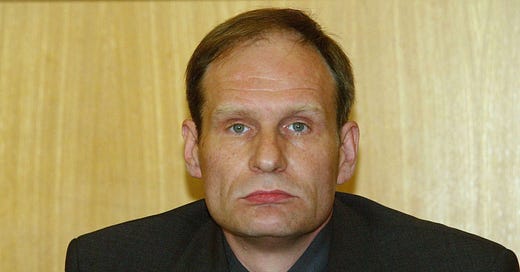The Armin Meiwes case vanished from headlines years ago. The German computer repairman now sits in a reasonably clean and neat prison cell, serving life for killing and eating a willing victim he found online. Most folks remember only fragments — the classified ad, the videotaped horror, the bizarre consent. But…
Keep reading with a 7-day free trial
Subscribe to Oliver Bateman Does the Work to keep reading this post and get 7 days of free access to the full post archives.




